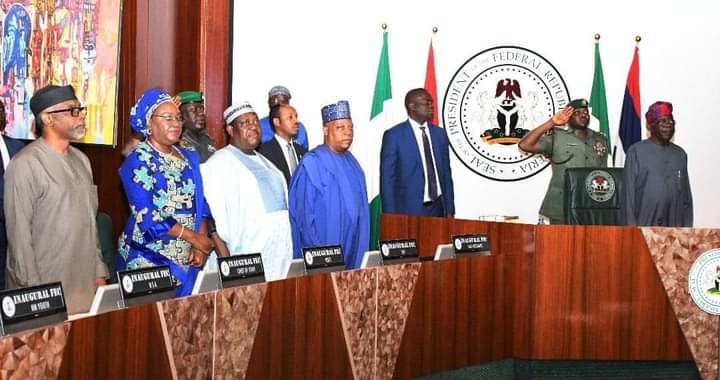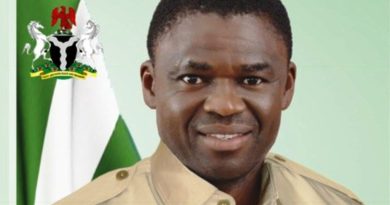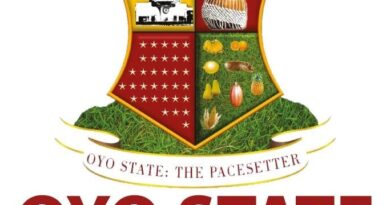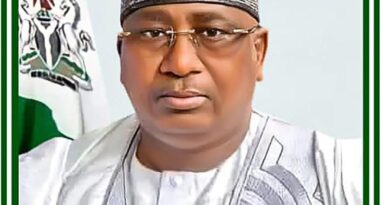Economic Stability Is Our Priority In 2024 Agenda-VP …As NEC Appeals To Organized Labour To Shelve Planned Strike
The Vice President, Senator Kashim Shettima, has identified stability as one of the primes in the economic agenda of the Tinubu administration for the year 2024.
This is just as the National Economic Council (NEC) has appealed to the Organised Labour to shelve its planned strike, saying President Bola Tinubu remains committed to the welfare of Nigerian workers.
The Vice President stated that government at the federal, state and local government levels must remain committed to reevaluating their priorities, streamlining processes, and making bold decisions that would reflect key social issues, including social protection, social investment and nutrition.
Senator Shettima stated this on Thursday at the 136th meeting of the National Economic Council (NEC) held in the Council Chamber of the Presidential Villa, Abuja.
NEC, a statutory body that has the mandate to advise the President on the nation’s economic affairs, is chaired by the Vice President, with the Governors of the 36 states of the federation, the Governor of the Central Bank of Nigeria (CBN), Minister of Finance and other stakeholders as members.
In his opening address at the NEC meeting titled, ‘Planning for Stability: Our Agenda for Economic Growth in 2024’, Vice President Shetimma reminded the governors and other members of NEC that the weight of the tough decisions to rescue Nigeria’s economy depends on their cooperation and goodwill.
He noted that what has set President Bola Ahmed Tinubu apart as a Nigerian leader is the courage to embark on fixing the country’s economy through bold reforms.
Identifying stability as a major priority in next year’s economic agenda, the VP said, “It took courage to embark on fixing an economy hindered by decades of political lip service. But that’s what has set President Bola Ahmed Tinubu apart: his bold reforms to reposition the economy and save it from further erosion. Other highlights of the meeting are as follows;
ACCOUNTS BALANCES:
Excess Crude Account: – $473,754.57
Stabilization Account – N34,936,868,803.58
Development of Natural Resources – N128,330,636,441.14
The Governor of Kogi State and chairman of the Committee on impact of Flood and Disaster Across the States in Nigeria, Yahaya Bello, categorized states based on degrees of damage. He classified the states as: Group AStates with over 15 points (most affected)Anambra, Bauchi, Bayelsa, Benue, Borno, Kogi, Nasarawa, Niger, Rivers, Enugu, Kano, Oyo, Yobe, ZamfaraGroup BStates with 10-15 pointsCross River, Delta, Jigawa, Kwara, OndoGroup CStates with less than 10 pointsKatsina, Abia, Adamawa, Akwa Ibom, Bauchi, Ebonyi, Edo, Ekiti, Gombe, Imo, Kaduna, Katsina, Kebbi, Lagos, Ogun, Osun, Plateau, Sokoto, Taraba, FCT.
COUNCIL RESOLUTION:
NEC resolved to develop a roadmap for intervention and directed NEMA to provide immediate intervention on relief to affected states. Roadmap to be developed and articulated by NEC with the Chairman of the Nigeria Governors Forum.Presentation on the Joint Planning Board (JPB) And National Council on Development Planning (NCDP)The presentation on the National Council on Development Planning (NCDP) and the Joint Planning Board (JPB) meetings serve as a platform for bringing together Senior Officials from Federal and State ministries, as well as other related Agencies responsible for Budget and Economic Planning, Representatives of the Organized Private Sector, the Academia, Development Partners and Civil Society Organizations to engage in in-depth discussions on economic policy issues, with a view to propose an optimal approach for enhancing economic management processes at both National and Sub-national levels. B. Status Report on the Implementation of Key Resolutions of the 21st Edition of the JPB/NCDP Meetings.
The FMBEP should collaborate with the States in the process of designing a template for harvesting the status of implementation of the JPB/NCDP resolutions, factoring the peculiarities of each State. i. The FMBEP should collaborate with the States in the process of designing a template for harvesting the status of implementation of the JPB/NCDP resolutions, factoring the peculiarities of each State. C. Energy Sufficiency for Sustainable Economic Development: Options for Nigeria
i. Government at all levels should promote the migration of Heavy-Duty Industries/Transport systems from fossil fuel to Gas Infrastructure;
ii. Given the new Electricity Act that empowers States and individuals to participate in all components of the energy sector, State Governments should carry out energy audit to determine Energy needs and explore areas for collaboration with the private sector based on their comparative advantage;
iii. States should develop small hydropower plants, on or off-grid, and solar, for communities and MSMEs;
iv. The three tiers of Government should institute initiatives for the promotion of attitudinal change regarding energy use, wastage, and theft; and
v. The government should promote Research and development, Local Content, New Energy (Hydrogen, Biofuels) Prototype Investments for energy sufficiency.
COUNCIL RESOLUTION:
Council noted that the meeting was successful and approved regular interaction and synergy among commissioners of Economic Planning across the federation.
PRESENTATION ON THE PRESIDENTIAL COMMITTEE ON FISCAL POLICY AND TAX REFORMS
The chairman of the Committee Mr. Taiwo Oyedele made presentation to the NEC on the fiscal policy and Tax Reforms, disclosing that the Committee was set up by His Excellency, President Bola Ahmed Tinubu, GCFR, to review and redesign Nigeria fiscal system with respect to:
(1) Revenue mobilisation, both tax and non-tax
(2) Quality of government spending and
(3) Sustainable debt management in addition, the committee will identify relevant measures to make Nigeria an attractive destination for investment and facilitate inclusive Economic growth.Deliverables and outcomesThe expected outcomes from the work of the committee will include, but not limited to the following:
1. Repeal of existing taxes and levies especially those that are suboptimal, obsolete or unduly burdensome and enactment of new harmonised tax laws;
2. Preparation of a harmonised list of taxes and levies, not exceeding a single digit in number and covering all levels of government;
3. Review of the 2017 National Tax Policy to produce a new National Policy on Tax and Fiscal Policy for ratification by the federal and state governments;
4. A national fiscal risk framework for efficient fiscal governance, fiscal consolidation and stability;
5. Draft bills for constitutional amendments on fiscal matters to promote fiscal federalism;
6. Enhancements to the revenue administration system to improve revenue mobilization and a robust framework for tax revenue accounting and reporting to improve taxpayer trust;
7. Establishment of National Office of Tax Ombudsman, Fiscal Policy and Tax Simplification.
COUNCIL RESOLUTION
Council noted the presentation
UPDATES ON PALLIATIVE DISTRIBUTION ACROSS THE STATES
The Governor of Kwara State, Abdulraman Abdulrazaq gave an update on the distribution of palliatives across the States. He told Council that members are making progress and urged them to re-double efforts as states looked forward for more interventions.
Released by:
Stanley Nkwocha
Senior Special Assistant to the President
(Office of the Vice President)
28th September 2023




